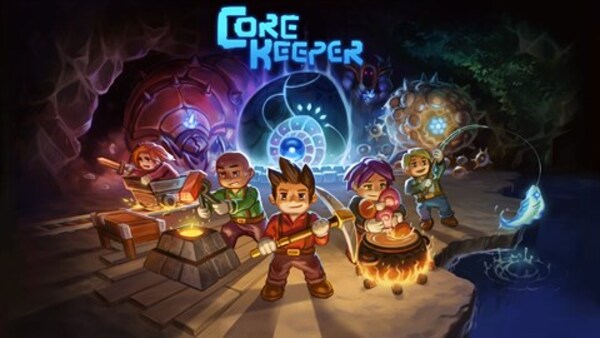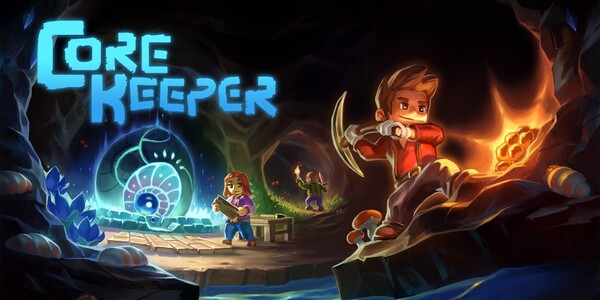Advertisement
Popular Now
Black Myth: Wukong, developed by Game Science, has gained significant attention for its stunning visuals, compelling narrative, and the use of the popular Chinese mythological character, Sun Wukong. Set in a richly detailed world inspired by Chinese folklore, the game aims to deliver an engaging action-RPG experience, showcasing intricate combat mechanics, powerful abilities, and an immersive storyline. Despite its impressive features, one specific issue has been a point of concern among players and critics alike: the game's combat mechanics.
In this article, we will take a deep dive into the combat mechanics of Black Myth: Wukong, examining the core issues that could potentially hinder the game’s success. We’ll explore the difficulty in balancing the flow of combat, the impact of hit detection on player experience, the lack of fluidity in combos, and the possible consequences of poorly executed combat mechanics in an action RPG.







The Combat Core: An Ambitious Yet Challenging System
The heart of Black Myth: Wukong lies in its combat system. Drawing inspiration from successful action-RPGs like Sekiro: Shadows Die Twice and Dark Souls, the developers have designed a complex and satisfying combat loop that incorporates combos, magic, and transformation mechanics. However, as promising as it is, the core combat system faces substantial challenges when it comes to execution.Balancing Challenge and Accessibility
One of the primary issues with Black Myth: Wukong's combat mechanics is striking the right balance between challenge and accessibility. The game has been designed to be punishing for players who make mistakes, reminiscent of FromSoftware's Soulsborne series. While this approach creates a sense of accomplishment and satisfaction when a player overcomes difficult encounters, it also raises questions about accessibility, especially for players who may not be as familiar with complex combat systems. In many instances, players find themselves either overwhelmed by a seemingly unmanageable difficulty spike or frustrated with the lack of proper in-game cues and feedback during combat. Combat challenges, while crucial to the genre, need to be properly paced to prevent it from feeling excessively punitive, especially for newcomers.
The Difficulty in Combo Fluidity
Another issue arises when it comes to the fluidity of combos. Combat in Black Myth: Wukong can feel disjointed at times, as players struggle to string together moves and make the most of their character’s abilities. For example, the game offers a variety of powerful skills tied to Wukong's transformation into different animal forms or his magic, but often these abilities don’t transition smoothly into the next action. Timing and coordination of these special abilities are often difficult to manage due to the lack of responsiveness between input and execution. While combos should feel natural and intuitive, Black Myth: Wukong’s combat system sometimes feels as if the animations don’t line up with player intentions. A fluid and fast-paced combat system is essential in action RPGs, and this lack of fluidity could make the experience less enjoyable.Hit Detection and Its Impact on Combat Experience
In any combat-focused game, one of the most critical elements is hit detection—the system that determines whether an attack lands on an enemy and how it registers. Black Myth: Wukong’s hit detection system has drawn considerable criticism from early gameplay videos and trailers, with many players noticing inconsistent interactions between attacks and enemies. These issues can disrupt the combat flow and make it difficult to judge the effectiveness of certain actions.
Misleading Feedback from Attacks
A significant part of the problem with hit detection lies in the feedback provided to the player. In action RPGs, proper feedback is necessary to help players gauge how well they’re performing during combat. In Black Myth: Wukong, many players have reported instances where attacks do not register despite clearly hitting enemies. In some cases, enemies will continue to animate as if unaffected by the player’s attacks, leading to frustration. This lack of feedback undermines the immersion of the combat system. When players don’t feel like their actions are having a direct impact on the enemies, it can lead to feelings of helplessness and disconnection. Proper visual and audio cues—such as enemy flinches, sounds of impact, and satisfying feedback animations—are critical to ensuring that the player feels empowered and in control of their character.Enemy AI and Hit Detection Inconsistencies
The issue of hit detection is also compounded by the sometimes erratic AI behavior of enemies. In several combat sequences, enemies seem to exhibit unpredictable movements that make it difficult for players to land hits. At times, enemies will flinch as though they have been struck, but the damage does not reflect that animation. This inconsistency between visual feedback and the actual outcome of an attack further contributes to the issue. It’s crucial for the developers to address these inconsistencies to avoid breaking the immersion of the game. A robust hit detection system is key to ensuring that combat feels engaging, responsive, and satisfying.The Problem with Stagnant Combat: A Lack of Fluid Transitions
An aspect that could significantly improve the combat mechanics is the fluidity with which players transition between various moves and abilities. In Black Myth: Wukong, while there are a multitude of attacks and abilities at the player’s disposal, the game struggles to deliver seamless transitions between them. The lack of smooth chaining between basic attacks, special abilities, and transformations impacts the overall pace of combat.
Impact on Momentum
The momentum in combat is critical for maintaining an engaging experience. In many modern action games, players are encouraged to flow between different combat styles: chaining together light and heavy attacks, switching stances, or activating abilities in quick succession. Black Myth: Wukong, however, has moments where the combat can feel like it hits a wall. These interruptions can occur during combo attempts or when trying to activate abilities mid-combo, breaking the sense of fluid progression that players crave. If combat doesn’t feel continuous, players may lose interest or become frustrated with the lack of responsiveness. Moreover, the game's higher difficulty spikes could make these interruptions feel even more punishing. Therefore, addressing the stagnant transitions between actions should be a priority in order to create a smooth and immersive combat experience.
Lack of Combo Variety and Strategy
Another issue arises from the limited variety in combos and overall combat strategies. While Black Myth: Wukong provides the player with a variety of weapons and abilities, many of them feel underutilized due to the rigid combo system. Players often end up relying on a few basic moves rather than discovering new strategies or combos that could make combat more engaging. This lack of diverse and effective combo possibilities limits the depth of combat. For a game that promises intricate mechanics and diverse skills, the combat system should encourage players to experiment with various attacks, abilities, and transformation options. The lack of strategic variety could harm the long-term replayability of the game.The Impact of Combat Mechanics on Player Engagement
In action-RPGs, the combat system plays a huge role in how players connect with the game. A solid combat system fosters a sense of empowerment and mastery. However, Black Myth: Wukong’s combat mechanics, if not properly refined, could result in a sense of frustration rather than fulfillment.Player Satisfaction and Mastery
The issue with Black Myth: Wukong’s combat mechanics is that they impede the player’s sense of growth and mastery. Combat systems that feel unresponsive or overly rigid often leave players feeling as though they have no control over the flow of battle. In turn, this lack of agency reduces satisfaction, which is crucial to an action RPG’s long-term appeal. Players enjoy the feeling of improving and overcoming challenges through skillful combat. However, if combat doesn't offer a fair challenge—if it feels inconsistent or disconnected—players may be less motivated to push forward. Game mechanics must provide clear, rewarding feedback in order to maintain player engagement throughout the game.


















